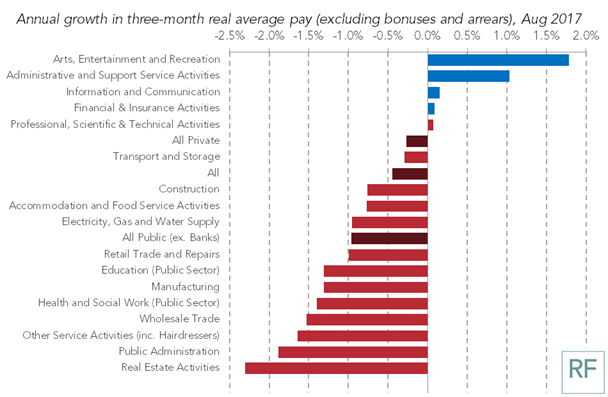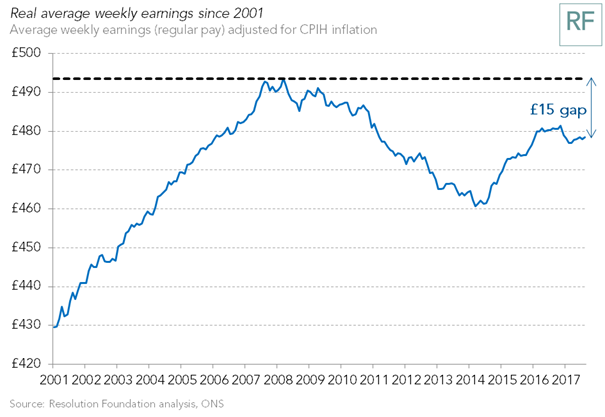LONDON – The continuing pay squeeze means real earnings are now £15 a week below their 2008 peak, and back to February 2006 levels, according to analysis by think tank the Resolution Foundation.
While real average earnings fell by -0.4% in the three months to August, compared to last year, the analysis predicts growth for the three months to October will be between -0.5% and -0.8%. Real earnings are likely to continue to fall until the end of 2017, it says, and to hit those working in the public sector hardest.
ONS data published on Wednesday shows the unemployment rate is at its joint lowest level since 1975, at 4.3%. But wage growth (excluding bonuses) continues to fall behind inflation, which is at 3%, to only 2.1%.
“With a record number of working people living in poverty, the news that real wages have fallen yet again is deeply concerning,” said Margaret Greenwood, Labour’s shadow employment minister. “While the overall increase in employment is welcome, it’s also clear from today’s figures that too many people are struggling to find employment because of their age, ethnicity, disability or where they live,” she said.
According to Resolution Foundation's analysis, those who have suffered most from the squeeze are estate agents, and only those working in the arts, admin, finance and IT have seen real wage growth.

Labour productivity, it says, is the "main long-term driver of real pay," but this has "flat-lined" over the past year. The analysis also says the increase in the number of graduates in non-graduate roles since 2000, which has been at a stable high-point since 2015, may also be constraining productivity, since their skills and qualifications are not being put to the best use.
Another worry for the young (those between 18-24) is long-term unemployment. According to the analysis, the rate of long-term unemployment for the young is now 59% higher than it was in the mid-2000s, the highest rise of any age group. For the young, the analysis says, time out from the labour market "is likely to be particularly damaging."

However, the analysis ends on a happier note, predicting that, "with inflation likely to subside towards the end of 2017 there may be some respite from the pay squeeze."

